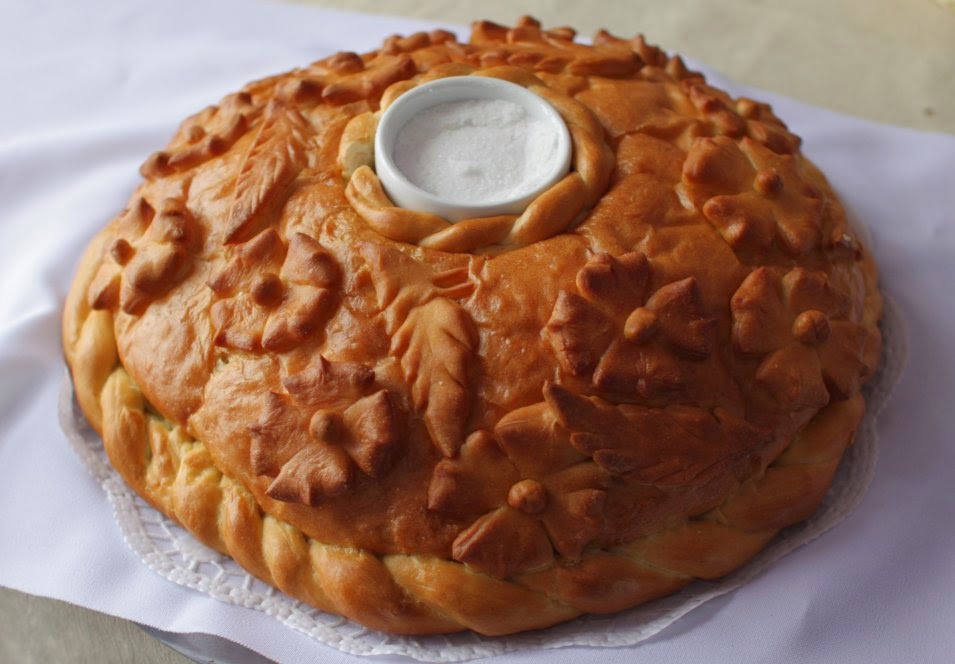(Also see 2017 blog post: BIDOBBA, as a matter of speaking)
 |
| "Frisian king Radbod refuses baptism" |
doop, dopen - Dutch
dåp, døpe - Norse
dop, döpa - Swedish
dåb, døbe - Danish
Taufe, taufen - German
According to Dutch etymology, these words are derived from 4th century Gothic:
It is usually assumed that the Christian meaning of the word arose in Gothic. Bishop Wulfila, who translated the bible into Gothic in the 4th century, used 'daupjan' for the Greek word 'báptein' (to submerge, dip). This meaning would have arrived in Bavaria (Germany) with the Gothic missionaries, and from there have spread over continental Europe.(original text: Vaak wordt aangenomen dat de christelijke betekenis van het woord is ontstaan in het Gotisch. Bisschop Wulfila, die in de 4e eeuw de bijbel in het Gotisch vertaalde, gaf Grieks báptein ‘onderdompelen, dopen’ met daupjan weer. Deze betekenis zou dan met de Gotische missie naar Beieren (Duitsland) zijn gekomen en zich van daaruit over het vasteland van Europa hebben verbreid.)
 |
| Edgar Degas, "le tub" (1886) |
tub - English, French
tobbe - Dutch
"late 14c., from Middle Low German, Middle Dutch, or Middle Flemish tubbe, of uncertain origin" (etymonline: tub)
"Origin unknown. [...] Might be connected to old-Dutch 'dobbo' - waterpool, but then the t- can't be explained." (etymologiebank: tobbe) The German word 'taufen' (see above) serves as an example how words with d- can change into t-.
(original text: Herkomst onbekend. [...] Misschien is het te verbinden met onl. dobbo ‘waterpoel’, maar dan is de t- niet te verklaren.)
The old-Dutch and Frisian noun 'dobbe' means dibhole, a dug pit filled with water, a puddle, pool or pond. (source1, source2, source3)
This word is related to the old-Dutch verb 'dobben' or 'dubben' - to dig (the modern word is 'graven').
Modern Frisian still has the verb 'bedobje' - to burry, overwhelm, hide (in the ground or in water).
Codex Oera Linda has 5 fragments with the same verb BIDOBBA, of which #1 and #3 have the litteral meaning, and the others a metaphorical one (to win over - Dutch: inpalmen):

1 [049/28] (àrge tid)
FÉLO MÀNNISKA WRDON IN JRTHA BIDOBBEN
veel mensen werden in de aarde bedolven
many people were burried in the earth

2 [056/14] (Wodin)
THÉRA THÉR MÁR HILDON FON HJARA BALG AS FON THÀT RJUCHT.
THAM LÉTON HINI BIDOBBA
zij die meer hielden van hun pens, als van het recht,
die lieten zich inpalmen)
those who loved their stomach more than justice ('the right'),
they let him win (them) over

3 [115/25] (Fréthorik)
ANNA WOLFA.MONATH LÉIDON THA DÉNE MARKA
FON FRYA.S LÁND VNDER NE SÉ BIDOBBEN.
In de Wolvenmaand lagen de 'déne' (lage, gedane*) marken
van Fryasland onder een zee bedolven.
In the wolvesmonth the 'déne' (low*) marks
of Fryasland laid burried under a sea.
(*Denmark, Denemarken)
![]()
4 [126/01] (Ljudgért)
ÉL.ET THORP IN ROW BIDOBBEN
heel het dorp in rouw gedompeld (bedolven)
the whole village dipped (burried) in grief
![]()
5 [149/18] (Friso)
HO FRISO ALLE TO BIDOBBE WISTE
hoe Friso allen wist in te palmen
how Friso succeeded in winning them all over
~ ~ ~ ~ ~ ~
Possibly also related:
deep - English
diep - Dutch
dyb - danish
dyp - norse
djup - swedish
djúpt - icelandic
djip - frisian
tief - German
































